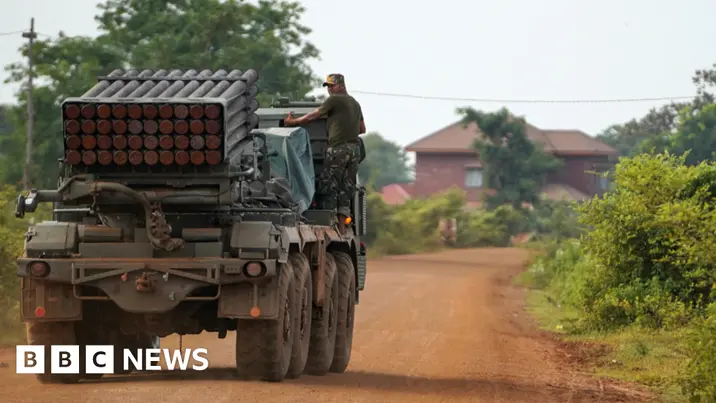T4K3.news
Thai and Cambodian officials hold border talks in Malaysia
Officials are meeting in Malaysia for cross-border discussions after recent clashes.
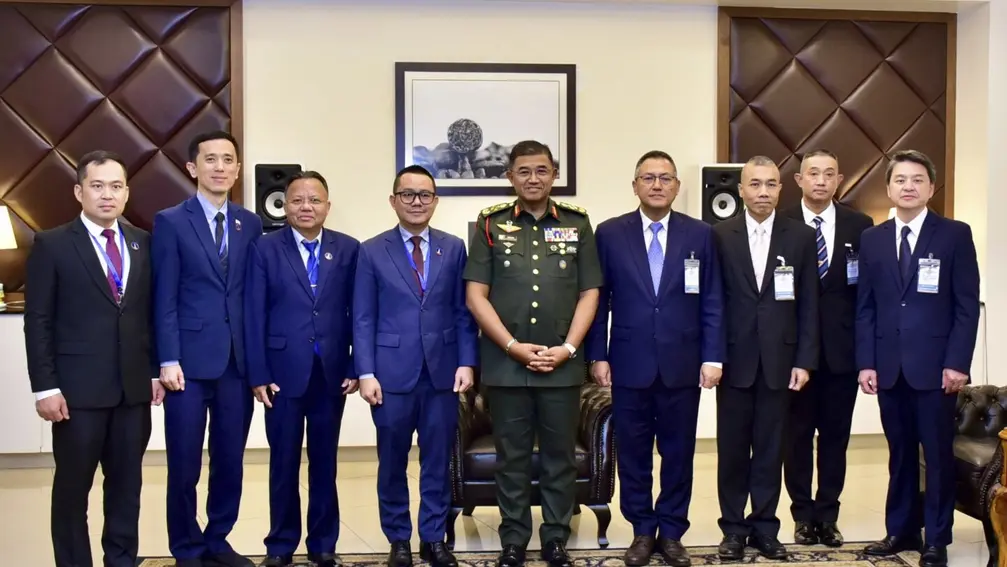
Thai and Cambodian officials have met in Malaysia for the first round of cross-border talks since a tense ceasefire was brokered last week.
Thai and Cambodian officials hold crucial talks in Malaysia after border clashes
KUALA LUMPUR, Malaysia — Thai and Cambodian officials convened in Malaysia on Monday, marking the first formal discussions since a ceasefire ended five days of violent clashes that left dozens dead and forced over 260,000 people to flee. These meetings, part of the General Border Committee, were relocated to neutral territory in Malaysia following tensions over a series of military incidents along the border. The ceasefire, influenced by U.S. economic pressure, was brokered last month as both nations faced potential trade consequences if hostilities continued. Monday's talks aimed to establish measures to prevent further conflicts, though longstanding territorial disputes were not addressed during this session. Despite the ceasefire, intermittent violence and allegations of humanitarian law violations have persisted, highlighting the fragility of the truce. Additionally, Cambodian King Norodom Sihamoni's recent decree empowering former Prime Minister Hun Sen suggests internal responses to the ongoing crisis, complicating an already intricate diplomatic landscape.
Key Takeaways
"The main session of the General Border Committee will include observers from Malaysia, the U.S., and China."
This highlights the international interest in resolving regional tensions.
"Cambodia is suffering from serious violations and threats to its territorial integrity by the Thai soldiers."
This reflects the ongoing accusations that fuel hostilities between the two nations.
"Thailand considers the detained Cambodian soldiers as prisoners of war, complicating the dialogue."
This adds another layer of complexity to the negotiations and humanitarian concerns.
"Hun Sen claims he must guide military affairs against those he labels invaders."
This statement underscores the rising nationalism and military posturing within Cambodia amid conflict.
The recent talks between Thailand and Cambodia come on the heels of a ceasefire that, while temporarily effective, may not be a lasting solution to the historical tensions. Both nations have deep-rooted territorial disputes and a legacy of hostility, which make any reconciliation efforts precarious. Importantly, the involvement of the U.S. in pressuring both parties to cease hostilities reflects how global players are increasingly entangled in regional conflicts. The discussions aimed at maintaining peace are overshadowed by persistent accusations from both sides, indicating that the battle lines may have shifted to diplomatic and media fronts. As both countries prepare for future negotiations, it appears that peace remains elusive without a genuine commitment to address the underlying issues causing conflict.
Highlights
- Talks in Malaysia signal a fragile truce amid decades-long conflict.
- A ceasefire may silence guns, but not the history of tensions.
- Cambodian King gives Hun Sen power amid ongoing territorial threats.
- Both nations remain locked in a battle of narratives and accusations.
Ongoing tensions raise potential risks
The delicate ceasefire may collapse as accusations of violations persist, potentially leading to renewed conflict.
The evolving situation highlights the need for sustained diplomatic efforts and engagement.
Enjoyed this? Let your friends know!
Related News
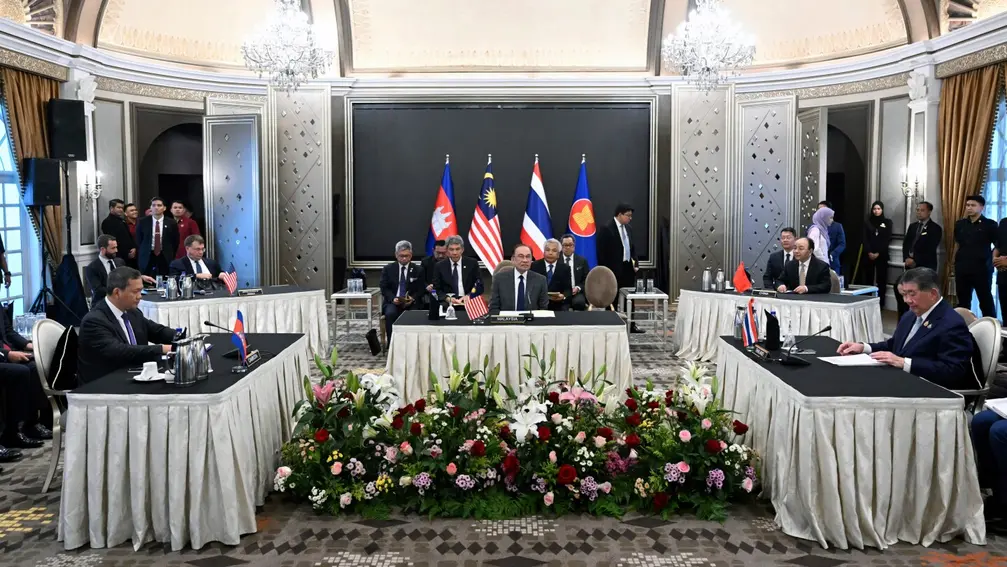
Ceasefire talks begin between Thailand and Cambodia
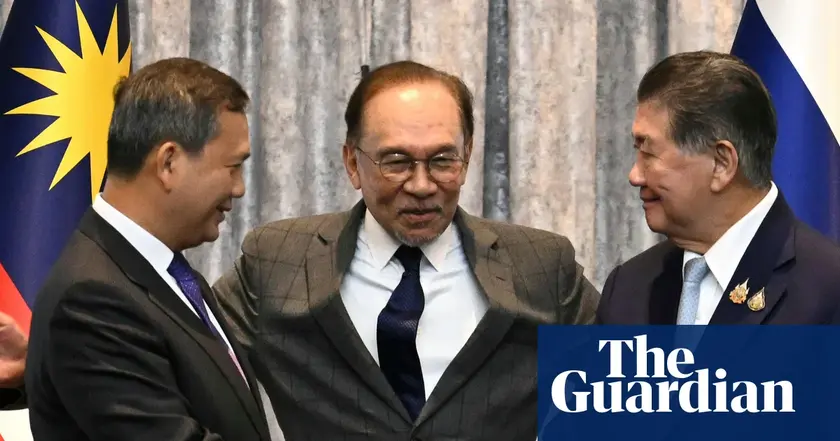
Thailand and Cambodia establish ceasefire to end border clashes
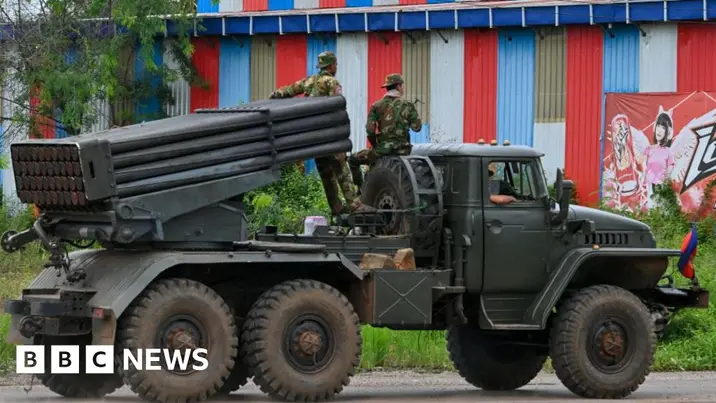
Thailand and Cambodia agree to peace talks in Malaysia
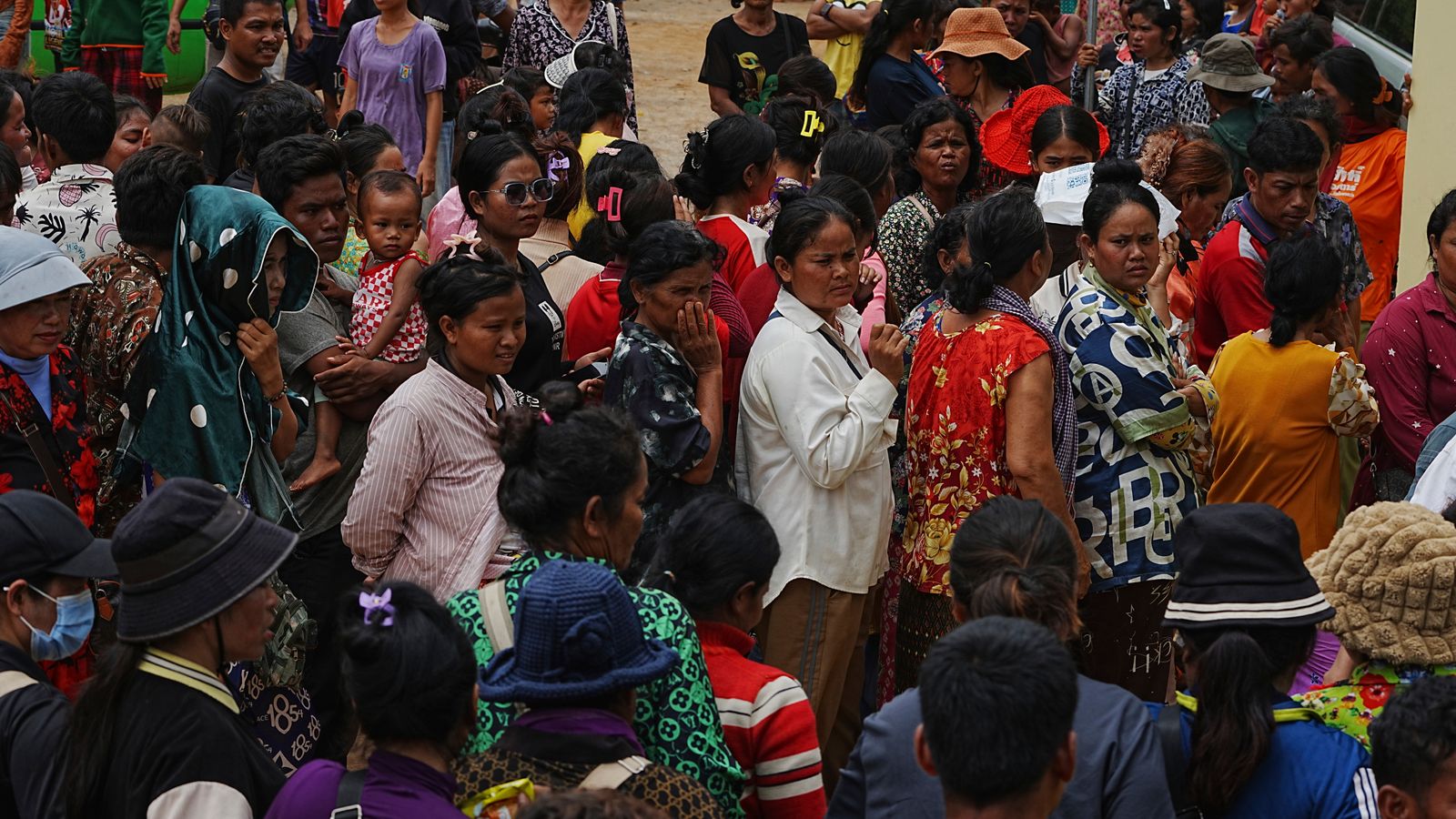
Thailand and Cambodia agree to peace talks
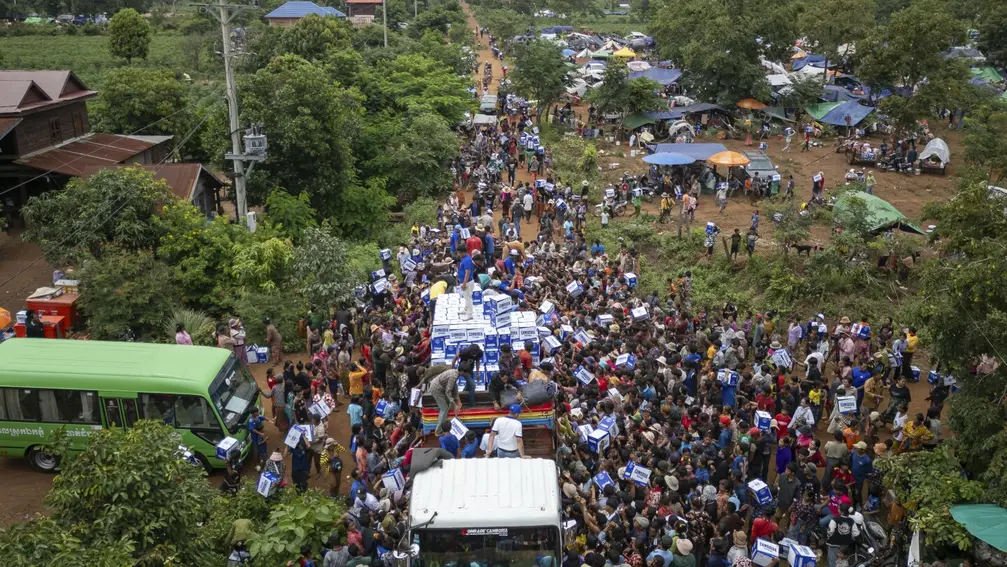
Thailand and Cambodia continue deadly border clashes
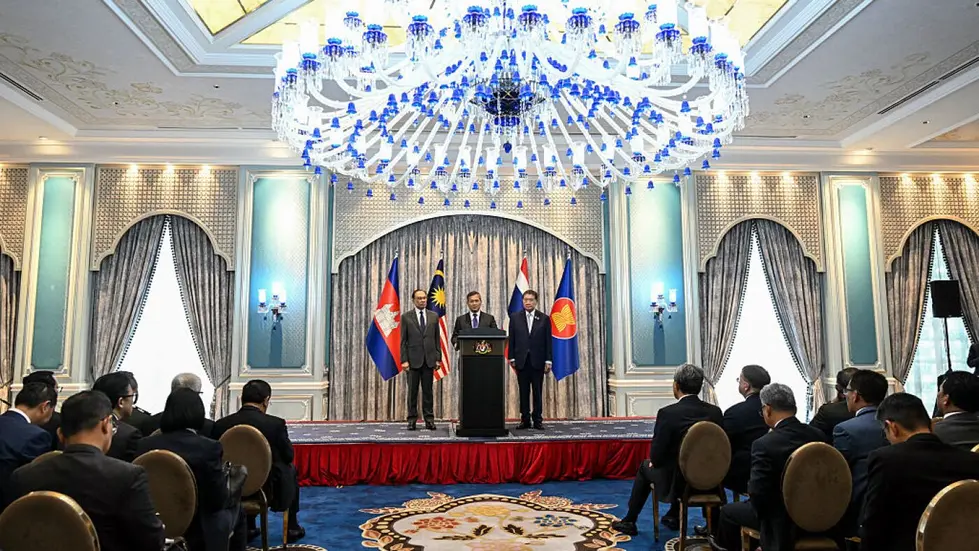
Ceasefire agreement reached between Thailand and Cambodia
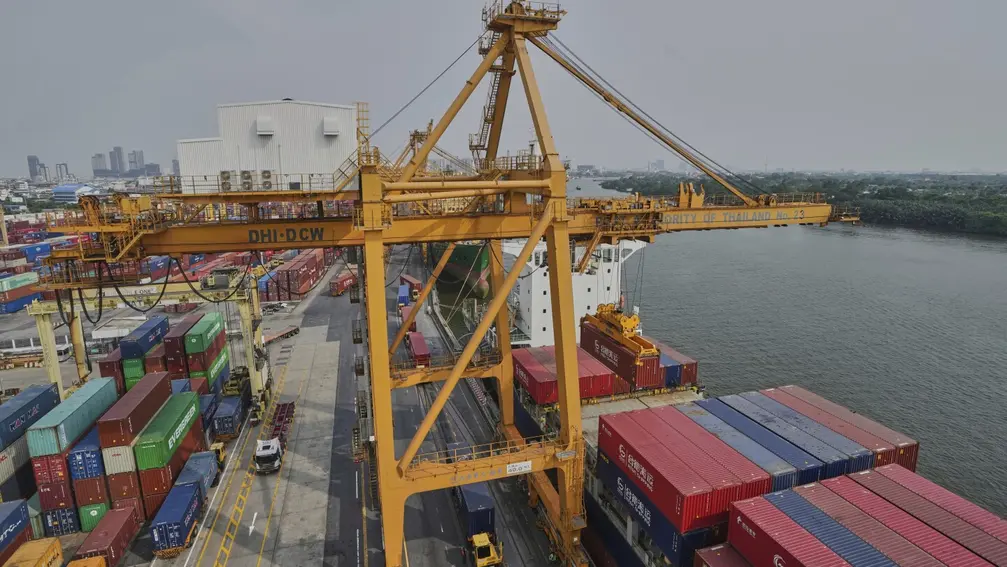
Countries react to Trump's new tariffs
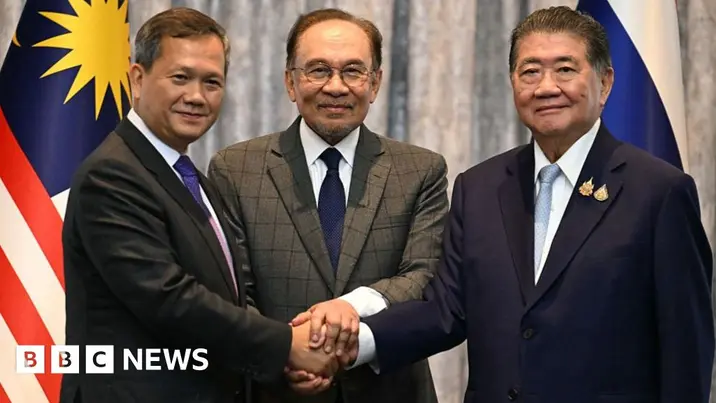
Thailand and Cambodia agree to ceasefire
